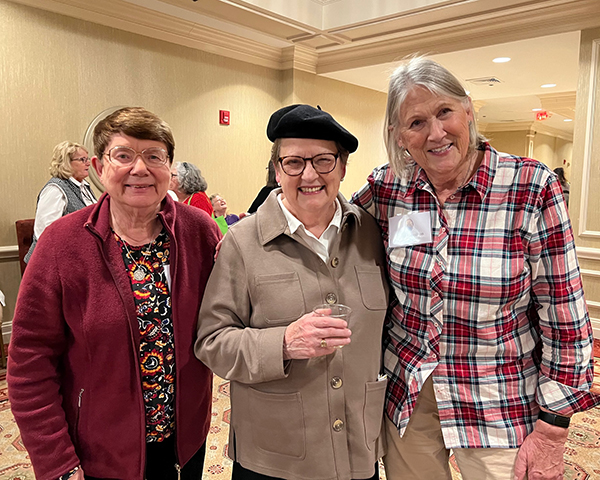
In life we are always going either backward or forward. There is no standing still. Though we might not notice the subtle changes in our relationships, they are happening.
Patience is an important virtue for sustaining growth in our relationships and in ourselves.
Daily life provides many opportunities for exercising patience:
- We sometimes have to wait in line or in traffic. We can take this ‘little bit of time’ for a kind word to a neighbor, for some personal reflection or for short interior prayers for friends.
- Unexpected events-a child’s team bus arrives two hours late-provide opportunities to practice patience. Not all of life’s events can be planned. Patience goes along with a needed flexibility.
- Opportunities to practice patience in our spiritual relationship abound. No two people are alike and we have to have patience with one another.
In friendship we can become aware of patterns of thought or action that we wish to change. We may find ourselves admiring a good quality in a friend and wish to emulate it; we may notice that our friend irritates us in some little way or other-and look within ourselves for the cause of the irritation. [I.e. why does this bother me?]
When dealing with ourselves-and not with our computers–change can be slow. It is amazing how resilient our habits can be. For example, some people almost always arrive early-others are late. Such pervasive habits can even be difficult to recognize.
If we wish to change our habits we will need patience first of all with ourselves. All the good resolutions in the world do not make for change. In the beginning our efforts can have more failures than successes. Usually change in habits occurs gradually with daily practice.
Patience requires that we persist, despite some failures, in our attempts to change for the better. Change calls for a decision, for an affective commitment and for self discipline.
A patient friend, one who gently encourages us, can make a big difference. Friends are particularly important if we are struggling with issues such as negative ways of thinking or acting.
Patience can also come into play in our ‘timing’. We often need to wait for the ‘right time’ to begin a new way of acting or to bring up a sensitive topic in a relationship. Here we might pray for divine guidance on what to do and when to speak.
I frequently notice that this ‘divine time’ seems slower than my time. God is infinitely patient with us. Despite our faults God sustains us and provides blessings. If we ‘take the long view’ we might be more patient with others and with ourselves and not in a hurry. God’s time is the right time.
John W. Crossin, OSFS




